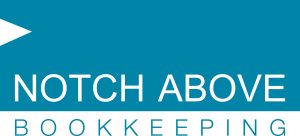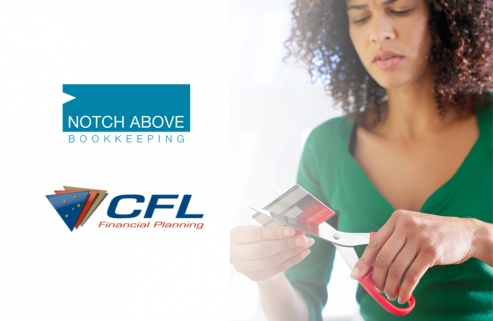7 Budgeting Tips to TAKE CONTROL and Regain Financial Power
Using your business like a personal bank? 7 budgeting tips to TAKE CONTROL and regain financial power.
As a business owner, have you ever felt like you’re just not getting ahead financially, and that even when your income increases you seem to be on a treadmill of spending every cent you earn and sometimes even more?
Often, when I meet clients for the first time, and ask them how much they are spending and how much they are saving each month, they either have no idea or openly say they are saving nothing, but know they can (and should) save more.
So why is controlling our finances so difficult? It’s mainly because we don’t try!
Why not? Because it seems too hard to set up a system or put a plan in place to help us keep track of our income and our spending, and to set and stick to savings goals. But here’s the thing…. You can change your current situation, if that’s what You really want. It doesn’t have to be this way anymore.
Think about it…. How good would it feel to get your finances on track, and stop stressing about them? You’d have the life you want. You’d TAKE CONTROL…!
If you have read this far, I know this resonates with you and I’m sure you want to take action. Enough is enough right?…. Take your financial life to the next level by starting new habits and following these tips.
- Embrace Financial Technology to track your spending
Tracking your spending helps you understand your daily money habits so you can create new ones.
Gone are the days of having to keep all of your receipts and enter them all into a notebook or spreadsheet each month to see what you have earned, spent & saved. Having to spend ages doing this is one of the main reasons people stop budgeting.
There are now a wide variety of apps and software programs available to help you do this easily. They range from fairly simple to very comprehensive. The best of these can: link to all of your accounts (even business accounts), let you upload photos of receipts, automatically categorise your income and expenses, help you set & tracks savings goals, help manage your debts and even track your super.
- Review your cashflow
It helps to treat your personal finances like a business. Measure the revenue (money coming in) against costs (what is spent), and look at what you own versus what you owe.
Calculate the proportion of your income that goes to meeting your expenses, is the key here as it helps you identify the areas where you are spending more than you realised.
By simply understanding your potential to save you can make better financial decisions about investing, borrowing, cost-cutting and spending.
- Create a cash flow plan
By understanding the current flow of your money and then setting both spending and savings goals you can establish a cash flow plan. Once you have committed to a list of goals you will have a stronger motivation to change your money habits. Here’s an article on 5 quick tips on faster customer payments, which will help your cashflow.
Now that you have an accurate picture of your cashflow, lowering or eliminating the unnecessary expenses becomes a lot easier. Whether it’s, entertainment, food and alcohol, interest on financed purchased, or travel that are out of whack, scaling these back is the secret to creating positive cash flow.
The trick is not to waste your new found positive cashflow, but instead to save and or invest in order to maximise profits and increase wealth. If you don’t have positive cash flow, it’s nearly impossible to do this.
- Pay yourself first
One of the most difficult (but important) aspects of cash flow management is having the discipline to pay yourself set amounts of money for separate goals. For instance:
- to cover your day-to-day living expenses
- to pay down debts
- to go towards a savings goal – home, car, holiday
- to invest
Having all your income paid into a hub account and then setting up automatic payments into multiple accounts for each of these goals is one way to manage this.
- Make clearing personal debt a priority.
One of the largest obstacles to financial growth is personal debt. The problem is that personal debt, particularly credit cards and short-term financing attract high interest rates and if the principal is not repaid, the debt will quickly compound, making it your most expensive liability.
Paying off your personal debt as your first cashflow priority helps to prioritise your other expenses. By forming this habit, you will become debt-free sooner.
- Invest
Once you’ve implemented a cashflow plan that has reduced your expenses, established some saving and eliminated personal debt, it’s time to consider investing into assets that will help you grow your wealth for years to come.
There are a range of ways to invest your hard-earned money: real estate, direct shares, managed investments, superannuation and venture capital. Do extensive research, ask questions and choose the investment types where you feel most comfortable investing.
- Seek advice from experts.
Develop a habit of seeking advice to help you plan and test out major financial decisions. This can help you avoid making costly mistakes that you’ll end up regretting. When seeking financial advice, make sure you seek it from qualified experienced advisers who are able to provide strategic advice, not just sell you a product. This way you’ll be less likely to take financial risks that could hurt your lifestyle.
Free Bookkeeping Systems Check-Up
Take our quick quiz to find out how to get more cash and time back in your life.
Start the Quiz
Specialising in Xero bookkeeping, Notch Above is a Brisbane bookkeeper and BAS Agent located in Alderley that offers Xero setup, as well as training and ongoing support. Notch Above can take care of all the bookkeeping tasks you would rather not do, like bank reconciliations, supplier payments, payroll services, debtor control and BAS returns.
Like us now on Facebook
Follow us now on Twitter
Connect with me on LinkedIn
Visit our Website


